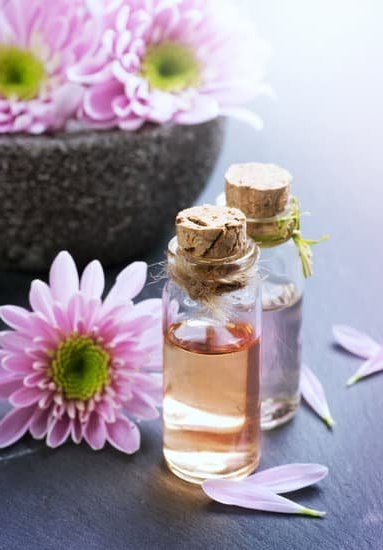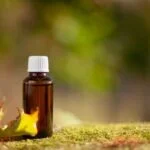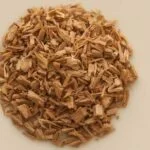Aromatherapy: a guide to using essentials oils for everyday life offers a comprehensive look into the versatile world of essential oils and their healing properties. From stress relief to improved sleep, these natural extracts have been used for centuries to promote wellness and overall well-being.
The practice of aromatherapy dates back to ancient civilizations who recognized the therapeutic benefits of essential oils for various ailments and emotional support. Today, with the resurgence of interest in natural remedies, more people are turning to aromatherapy as a holistic approach to health care.
In this guide, we will delve into the history of aromatherapy, explore the numerous benefits it can offer, discuss different essential oils and their uses, provide tips on safe usage at home, share DIY recipes for common issues, and offer practical advice on how to incorporate aromatherapy into your daily routine. Join us on this fragrant journey as we uncover the power of essential oils in enhancing your everyday life.
History of Aromatherapy
Aromatherapy has a rich history that dates back thousands of years, with ancient cultures harnessing the power of essential oils for wellness and healing practices. The use of aromatic plant extracts can be traced to civilizations such as Ancient Egypt, Greece, Rome, China, and India. These civilizations utilized essential oils for various purposes, including religious ceremonies, medicinal treatments, and skincare rituals.
Ancient Egypt
One of the earliest records of aromatherapy can be found in Ancient Egypt, where essential oils were highly prized for their medicinal properties and spiritual significance. Egyptians used aromatic oils like frankincense, myrrh, and cedarwood in embalming practices to preserve the bodies of pharaohs and nobles. Additionally, they incorporated these oils into perfumes, cosmetics, and healing balms to treat ailments and promote overall well-being.
Ancient Greece and Rome
In Ancient Greece and Rome, essential oils were also an integral part of daily life. Greek physician Hippocrates is said to have used aromatic herbs like lavender and thyme in his medical practice to treat various health conditions. The Romans adopted many Greek practices related to aromatherapy and further developed techniques for distilling essential oils from plants. They used fragrant oils like rosemary, peppermint, and chamomile for both therapeutic and aesthetic purposes.
China and India
Aromatherapy also flourished in ancient Chinese and Indian cultures. Traditional Chinese medicine utilized aromatic herbs like ginger root, cinnamon bark, and eucalyptus oil to balance the body’s energy flow or Qi. In India, Ayurveda – the ancient healing system – prescribed the use of essential oils such as sandalwood, patchouli, and jasmine for mental clarity, emotional balance, and spiritual connection. These ancient civilizations recognized the profound impact that essential oils can have on physical health, emotional well-being, and spiritual growth.
Benefits of Aromatherapy
Aromatherapy has been used for centuries as a natural remedy to promote physical and emotional well-being. The benefits of aromatherapy are vast, ranging from stress relief to improved sleep. By harnessing the power of essential oils extracted from plants, individuals can experience a variety of positive effects on their overall health.
One of the key benefits of aromatherapy is its ability to reduce stress and anxiety. Essential oils like lavender, chamomile, and frankincense have calming properties that help relax the mind and body. Simply inhaling these soothing scents can create a sense of peace and tranquility, making it easier to unwind after a long day or during times of heightened stress.
In addition to stress relief, aromatherapy can also aid in improving sleep quality. Essential oils such as cedarwood, bergamot, and valerian root have sedative properties that can promote relaxation and help induce a restful night’s sleep. Whether diffused in the bedroom or added to a relaxing bath before bedtime, incorporating these essential oils into your nighttime routine can lead to better sleep patterns and increased overall well-being.
- lavender
- chamomile
- frankincense
Overall, the benefits of aromatherapy make it a valuable tool for enhancing both physical and mental health in everyday life. From reducing stress levels to improving sleep quality, essential oils offer a natural way to support wellness and promote a sense of balance in our busy lives.
Different Essential Oils and Their Uses
Aromatherapy, a practice that involves using essential oils for their therapeutic benefits, has gained popularity in recent years as people seek natural remedies for various health and wellness issues. Essential oils are concentrated plant extracts that have been used for centuries for their healing properties. Each essential oil has its own unique composition and aroma, making them versatile and effective in addressing a wide range of physical and emotional concerns.
One of the key aspects of incorporating aromatherapy into your daily routine is understanding the different essential oils available and their specific uses. Some popular essential oils and their benefits include:
- Lavender: known for its calming and relaxing properties, lavender oil can help reduce stress, anxiety, and improve sleep quality.
- Peppermint: with its invigorating scent, peppermint oil can help to alleviate headaches, improve focus and concentration, and soothe digestion.
- Tea Tree: recognized for its antiseptic and anti-inflammatory properties, tea tree oil is commonly used to treat skin conditions such as acne and cuts.
- Eucalyptus: with its refreshing scent, eucalyptus oil is great for respiratory issues like congestion or coughs, as well as muscle soreness relief.
By familiarizing yourself with the various essential oils and their uses, you can create personalized blends to target specific concerns or simply enjoy their aromatic benefits throughout the day. Whether you’re looking to relax after a long day at work or boost your energy levels in the morning, there is an essential oil to suit every need.
In addition to individual essential oils, many aromatherapy enthusiasts also enjoy creating custom blends to enhance the overall therapeutic effects. By combining different essential oils with complementary properties, you can create synergistic blends that amplify the desired outcome.
Experimenting with blending various oils can be a fun and creative way to explore the world of aromatherapy while reaping the benefits of multiple oils at once. Whether you prefer floral scents like rose or citrusy notes like lemon, there are endless possibilities for creating unique blends tailored to your preferences and needs.
How to Safely Use Essential Oils at Home
Aromatherapy is a practice that has been gaining popularity for its numerous health benefits and therapeutic uses. Essential oils, which are the foundation of aromatherapy, are highly concentrated plant extracts known for their powerful healing properties.
When used correctly, essential oils can promote relaxation, improve mood, relieve stress, boost immunity, and even aid in physical ailments. However, it is crucial to know how to use essential oils safely and effectively, especially for beginners who are just starting their journey into aromatherapy.
One important tip for safely using essential oils at home is to always dilute them before applying them to the skin. Essential oils are potent substances that can cause irritation or allergic reactions if applied directly.
It is recommended to mix essential oils with a carrier oil such as coconut oil, almond oil, or jojoba oil before using them on the skin. This not only helps reduce the risk of adverse reactions but also helps spread the essential oil more evenly over the skin.
Another key aspect of safely using essential oils is understanding their individual properties and potential side effects. Different essential oils have different therapeutic properties and strengths, so it is important to do your research or consult with a qualified aromatherapist before using any new essential oil.
Some essential oils may not be suitable for pregnant women, children, or individuals with certain medical conditions. By being informed about each essential oil you use, you can ensure a safe and beneficial experience with aromatherapy.
| Aromatherapy Tip | Details |
|---|---|
| Dilute Essential Oils | Always dilute essential oils with a carrier oil before applying them to the skin to avoid irritation. |
| Know Individual Properties | Understand the specific properties and potential side effects of each essential oil before use. |
Lastly, when diffusing essential oils at home, it is important to follow proper guidelines on dosage and duration. Overexposure to strong scents can cause headaches or respiratory issues for some individuals. Start with a low number of drops in your diffuser and gradually increase based on personal preference.
Additionally, remember that less is often more when it comes to aromatherapy – using too much of an essential oil may not necessarily enhance its benefits but could overwhelm your senses instead. With these tips and tricks in mind, beginners can safely enjoy the wonderful world of aromatherapy in their everyday lives while reaping its many rewards.
Aromatherapy Recipes for Everyday Use
When it comes to incorporating aromatherapy into your daily routine, creating your own DIY blends can be a fun and rewarding experience. By mixing different essential oils together, you can customize scents that suit your preferences and address specific needs such as relaxation, focus, or mood enhancement.
To make a relaxing blend, consider combining lavender, chamomile, and bergamot essential oils. Lavender is well-known for its calming properties, while chamomile can help reduce stress and anxiety. Bergamot adds a citrusy aroma that uplifts the mood. Simply mix a few drops of each oil with a carrier oil like jojoba or coconut oil and store it in a roller bottle for easy application on pulse points.
For boosting focus and concentration, try blending rosemary, peppermint, and lemon essential oils. Rosemary is known for its cognitive-enhancing properties, peppermint provides an invigorating scent, and lemon promotes mental clarity. Mix these oils together in a diffuser or create a room spray by adding them to water in a spray bottle. Use this blend during work or study sessions to stay alert and focused throughout the day.
In addition to relaxation and focus blends, you can experiment with different essential oils to create recipes for promoting sleep, energizing tired muscles, or even uplifting your mood during stressful times. The possibilities are endless when it comes to concocting aromatherapy blends that cater to your individual needs and preferences. Experiment with various combinations until you find the perfect blend that enhances your well-being on a daily basis.
| Aromatherapy Blend | Essential Oils Used |
|---|---|
| Relaxation Blend | Lavender, Chamomile, Bergamot |
| Focus Blend | Rosemary, Peppermint, Lemon |
Incorporating Aromatherapy Into Your Daily Routine
Aromatherapy has become increasingly popular for its holistic approach to improving overall well-being. The use of essential oils in daily routines can offer a range of benefits, from increased focus and productivity at work to relaxation and stress relief during self-care rituals. By incorporating aromatherapy into your daily routine, you can create a more balanced and harmonious lifestyle.
Here are some practical ways to integrate aromatherapy into your day-to-day activities:
- Morning Routine: Start your day by adding a few drops of invigorating citrus essential oils like lemon or grapefruit to your shower gel or bathwater. The fresh scent will help wake up your senses and energize you for the day ahead.
- Workplace: Create a calming atmosphere at your workplace by diffusing lavender or peppermint essential oil. These scents can help reduce stress, boost concentration, and enhance mental clarity, making it easier to stay focused during busy work hours.
- Exercise: Enhance your workout routine by applying a diluted blend of eucalyptus and rosemary essential oils before exercising. These oils can improve breathing function, increase circulation, and provide an extra boost of energy to support your physical activity.
Incorporating aromatherapy into your daily routine is a simple yet effective way to promote wellness and balance in all aspects of your life. Whether you use essential oils for work-related purposes or for self-care practices, the natural scents can uplift your mood, relax your mind, and improve overall quality of life. Start exploring the world of aromatherapy today and experience the transformative power of essential oils firsthand.
Aromatherapy for Common Ailments
Aromatherapy has been a popular holistic approach to health and wellness for centuries, offering natural remedies for common ailments such as headaches and digestive issues. Essential oils are concentrated plant extracts that contain various therapeutic properties, making them a versatile and effective tool for managing these conditions. When used properly, essential oils can provide relief from symptoms, promote relaxation, and support overall well-being.
For headaches, essential oils like peppermint, lavender, and eucalyptus are known for their analgesic and anti-inflammatory properties. Peppermint oil has a cooling effect that can help alleviate tension headaches, while lavender oil is soothing and calming, perfect for relieving migraines. Eucalyptus oil is also beneficial for headaches due to its ability to open up the sinuses and improve circulation.
Digestive issues such as indigestion, bloating, or nausea can also be addressed with the use of essential oils. Ginger oil is widely recognized for its ability to ease gastrointestinal discomfort and improve digestion. Peppermint oil can help relax stomach muscles and reduce gas and bloating. In addition, fennel oil is commonly used to relieve constipation and aid in proper digestion.
It’s important to note that essential oils should be diluted with a carrier oil before applying them topically or using them aromatically. For headaches, you can mix a few drops of essential oil with a carrier oil like coconut or almond oil and gently massage it onto your temples or neck.
To address digestive issues, you can inhale the aroma of essential oils using a diffuser or simply apply diluted oil on your abdomen in circular motions. With proper guidance and knowledge of different essential oils’ benefits, incorporating aromatherapy into your daily routine can provide natural relief for various common ailments.
Conclusion
In conclusion, embracing the power of aromatherapy in your everyday life can truly enhance your overall well-being and improve your quality of life. Essential oils have been used for centuries by ancient civilizations for their healing properties, and now, we have the opportunity to incorporate them into our modern routines. From stress relief to improved sleep, the benefits of aromatherapy are numerous and impactful.
By incorporating aromatherapy into your daily routine, whether it be through diffusing essential oils, creating DIY blends for relaxation or focus, or using them to alleviate common ailments like headaches or digestive issues, you can experience the transformative effects firsthand. It is important to remember to always use essential oils safely and responsibly, following guidelines and tips for beginners to avoid any adverse reactions.
Whether you choose to use essential oils at work, during self-care practices, or as a natural remedy for everyday ailments, aromatherapy offers a holistic approach to wellness that can benefit both your physical and mental health. So why not explore the world of aromatherapy and see how these powerful plant extracts can positively impact your everyday life? Embrace the ancient practice of utilizing essential oils in your modern lifestyle and unlock their full potential for a healthier, happier you.
Frequently Asked Questions
How Do You Use Essential Oils in Your Daily Life?
Essential oils are a common part of my daily routine. I use them in various ways such as diffusing them to create a calming atmosphere, adding them to my skincare products for added benefits, and even using them in homemade cleaning solutions for a pleasant aroma.
What Essential Oils Are Good for Everyday Use?
Some essential oils that are great for everyday use include lavender, peppermint, lemon, tea tree, and eucalyptus. These oils have versatile properties that make them suitable for a wide range of purposes such as relaxation, focus, cleaning, and even minor ailments.
Can You Use Essential Oils Everyday?
Yes, essential oils can be used every day with proper caution and dilution. It is essential to follow guidelines for each oil’s safe usage and consult with a healthcare professional if you have any underlying health conditions or concerns. Using different oils on rotation can also prevent sensitivity issues.

Are you looking for a natural way to improve your health and wellbeing?
If so, aromatherapy may be the answer for you.





